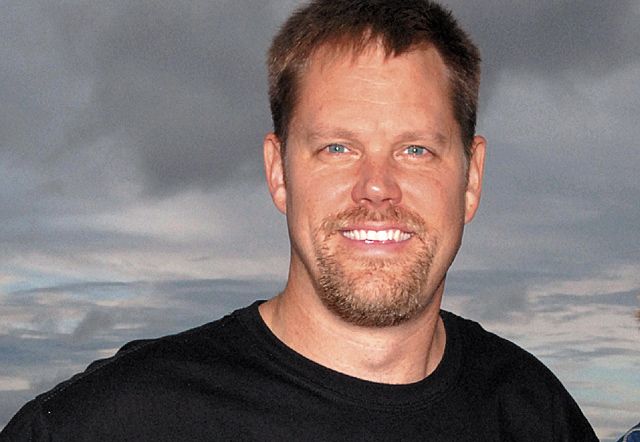Andy Dehart, a US-based shark expert and TV presenter
I think that the primary goal of all aquariums is to educate visitors about the animals they are seeing. These animals are ambassadors to their species people generally care more for things they know.
First, sharks are not mindless eating machines out for humans. They are quite intelligent animals when compared to dogs, cats or horses. There is no shark species that eats humans as part of their regular diet. In most shark attack cases, the shark leaves after realising that they have bitten a human and not their intended prey.
Second, sharks need our help to survive. Sharks are being killed at a rate of 250,000 per day. These great fish of the deep mature slowly and have few young compared to other commercially sought-after fish. They cannot sustain this type of fishing pressure. Some species, such as the hammerhead, are down by nearly 90 per cent in the last 20 years.
When I was a boy, my father worked for the National Oceanic and Atmospheric Administration (NOAA) and I got to travel with him through the Caribbean. I grew up near Chesapeake Bay in Maryland and I've been in water for as long as I can remember. I also grew up near one of the best aquariums in Baltimore and started working there when I was 15. I consider myself to one of the luckiest people.
I have achieved all that I have aspired to do in my career by the age of 36, and I'm most fortunate to have done so. I have had such a rewarding career working with sharks in an aquarium environment. And now my role with Discovery has launched a whole new set of aspirations about getting the word out to the world that sharks need our help. What better platform to do this from than the Discovery Channel?
The first was getting a full-time job in the aquarium industry. It is a very competitive market with few job openings. I was lucky enough to get involved in public aquariums while still in high school and just kept at it.
My first full-time job was helping to build and then open the Scott Aquarium at Omaha's Henry Doorly Zoo in Nebraska. During my time there I managed their one million gallon shark exhibit. We had a tiger shark there for three years who I got to develop a really wonderful personal relationship with, despite their bad reputation.
After returning to Baltimore and spending another seven years there, I moved to our DC venue when the Baltimore and Washington aquariums aligned. Helping with the renovation of America's first aquarium has been very satisfying.
Many sharks species are on the verge of functional extinction as they are being killed for their fins as well as by being bycatch. Sharks are not appropriate as commercial fishery, so in my personal opinion, all shark fishing should be suspended until the stocks have time to replenish. We then need to do a better job managing shark fishery. Even if we stop the direct fishing of sharks, many will still be killed as bycatch, so looking at sustainable seafood choices is also very important.
I met my wife at the National Aquarium and worked with her for many years we are both aquarists. We obviously share many of the same passions in our job, as well as in terms of our personal interests, and that has developed an incredibly strong bond between us. She has also been a huge supporter of my increased role with Discovery. She amazes me how she does so many things to help me follow my dreams.
We had our first child two years ago a daughter so my wife is now taking care of a completely different type of creature at home! It is amusing and amazing to see what extent our work with animals has proved to be applicable to raising our daughter in terms of positive reinforcement and observing behaviour. My wife is still doing some consulting work, but is primarily focused on raising her.
My wife's focus was on coral husbandry, and with mine being sharks I'm always trying to make sure my daughter knows that sharks are way cooler than coral! It seems to be working as her third word was 'shark'.
I love sharks and I am very passionate about their survival and protection. As long as I keep that frame of mind in all the projects I do, I believe that I will stay on track. I am extremely lucky to have had opportunities with the National Aquarium and the Discovery Channel, and I don't plan to ever waste a moment that could be spent educating people about sharks.
Although it is probably not possible to get everyone to love sharks like I do, I do hope to engage people in conversation or through the media to respect sharks and the critical role they play in our environment. I have a few species of sharks I would love to highlight through TV programming, but my main objective is to keep spreading awareness that sharks are not dangerous predators, but are essential parts of our oceans.
Andy DeHart will be hosting a programme called Shark After Dark on the Discovery Channel. It can be viewed today (September 4) at 4am (UAE time).



